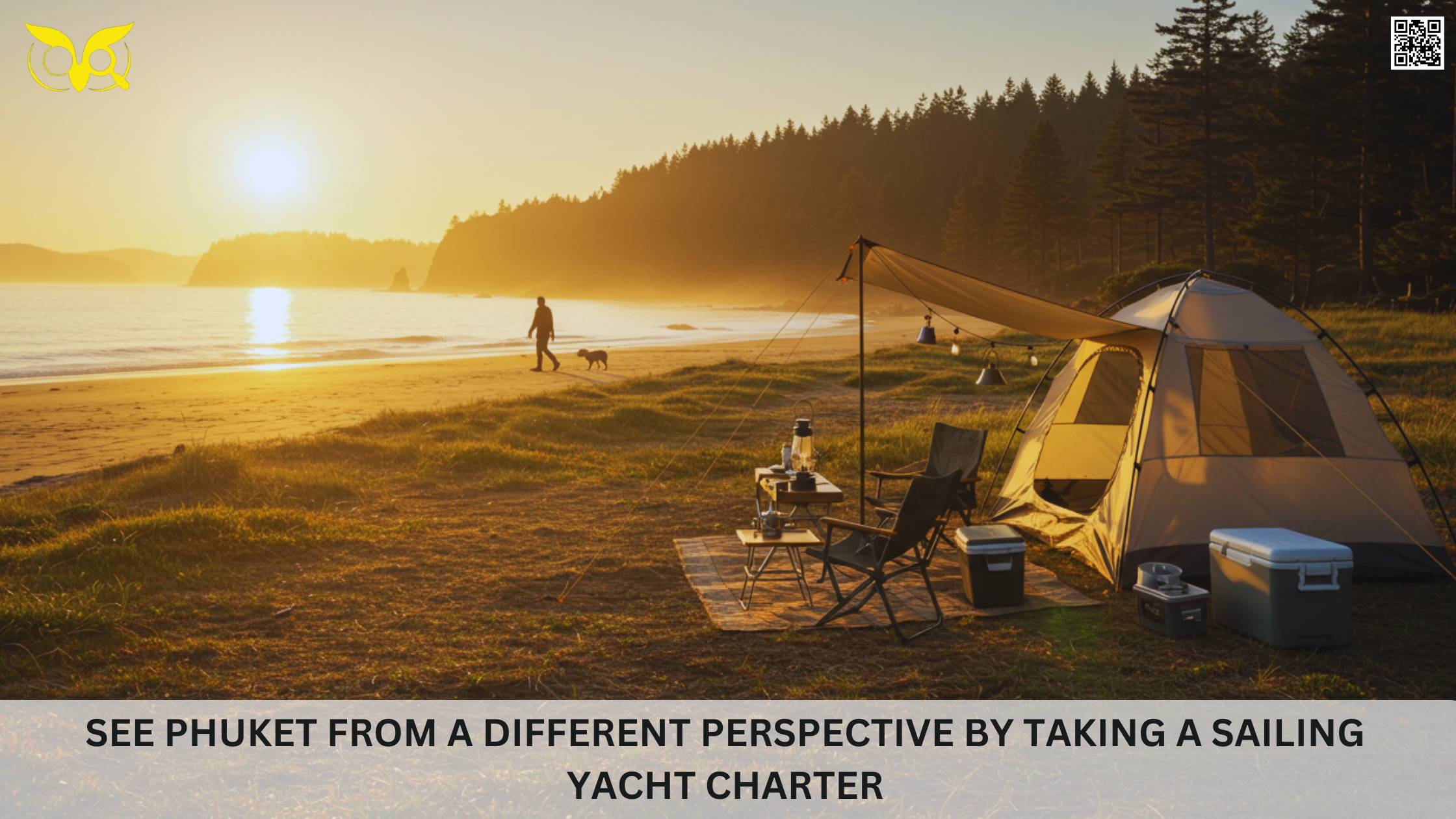Beach camping is an incredible way to enjoy nature, offering breathtaking views, the soothing sound of waves, and the joy of sleeping under the stars. Whether you’re a seasoned camper or a first-timer, this guide will help you find the best beach camping spots and provide essential tips to ensure a smooth and enjoyable experience.

Top Beach Camping Spots Around the World
1. Assateague Island, USA: Located off the coast of Maryland and Virginia, Assateague Island is famous for its wild horses roaming freely along the shore. The island offers a pristine, natural camping experience with oceanfront sites and opportunities for kayaking, fishing, and birdwatching.
2. Fraser Island, Australia: The world’s largest sand island, Fraser Island, is a paradise for beach campers. With its crystal-clear lakes, lush rainforests, and golden beaches, this UNESCO World Heritage Site is perfect for adventure lovers. Campers can enjoy off-road driving, swimming, and spotting native wildlife.
3. Playa El Tecolote, Mexico: Situated in Baja California, Playa El Tecolote is a hidden gem for campers looking for a remote and peaceful getaway. This beach offers stunning sunset views, soft sandy shores, and excellent conditions for snorkeling and paddleboarding.
4. Shell Island, UK: For a unique coastal camping experience, head to Shell Island in Wales. Known for its stunning dunes and panoramic sea views, this beach is a fantastic spot for stargazing and long walks along the shore. The island is only accessible during low tide, adding to its charm.
Essential Beach Camping Tips
Find Beach Camping Spots on Camplinq
If you’re looking for the best beach camping sites, Camplinq is a great resource to explore. This platform provides detailed listings, reviews, and essential information on various beach camping destinations, helping you choose the perfect spot for your next adventure. Whether you prefer a remote getaway or a lively beachfront, Camplinq makes it easy to discover and book the ideal campsite.
Choose the Right Tent and Gear
When camping on the beach, it’s crucial to have a sturdy, wind-resistant tent with proper sand stakes to prevent it from blowing away. Consider a tent with good ventilation to keep cool in warmer temperatures. Bring a tarp or groundsheet to protect against sand and moisture.
Check the Tides and Weather Forecast
Before setting up camp, check tide charts to ensure you’re not pitching your tent too close to the water. Unexpected high tides can flood your campsite, making it unsafe. Also, keep an eye on the weather forecast to prepare for strong winds or sudden rain.
Pack Light but Smart
Since beach camping involves exposure to sun and saltwater, bring lightweight but essential gear. Some must-haves include:
- Sunscreen and sun protection (hats, sunglasses, rash guards)
- Plenty of fresh water (hydration is key!)
- Sand-resistant mats or blankets
- Portable cooking stove or grill
- Biodegradable soap and trash bags for eco-friendly camping
Keep Food Secure and Sealed
Food left out on the beach can attract unwanted guests like seagulls, crabs, or raccoons. Store food in airtight containers and keep them inside a cooler. Avoid leaving trash behind and always clean up your campsite.
Be Mindful of Campfire Rules
Not all beaches allow campfires, so check local regulations before lighting one. If permitted, build your fire below the high tide line and away from vegetation. Always extinguish it completely before leaving to prevent wildfires.
Respect the Environment
Beach ecosystems are fragile, so practice Leave No Trace principles. Avoid disturbing wildlife, never collect shells or marine life, and dispose of waste responsibly. Using biodegradable toiletries and minimizing plastic use can help protect the environment.
Bring Entertainment and Activities
Beach camping offers endless opportunities for fun. Pack a frisbee, volleyball, or fishing gear for daytime activities. At night, enjoy stargazing, storytelling around a small fire, or listening to the waves with a good book.
Prepare for Bugs and Wildlife
Depending on the location, mosquitoes and sandflies can be a nuisance. Bring insect repellent and wear light, long-sleeved clothing during peak biting hours. Be aware of potential wildlife encounters, such as sea turtles nesting or local critters scavenging for food.
Have a Backup Plan
Mother Nature can be unpredictable, so always have an alternative plan in case of storms or unexpected conditions. Identify nearby shelters or backup accommodations in case you need to relocate quickly.
Capture the Moment
Don’t forget to document your beach camping adventure! Whether through photography, journaling, or social media sharing, capturing these memories will allow you to relive the experience and inspire others to explore nature.
Conclusion
Beach camping is an unforgettable experience that combines adventure with relaxation. By choosing the right destination and following essential tips, you can ensure a safe, enjoyable, and eco-friendly camping trip. Whether you prefer remote shores or lively beachfronts, the beauty of nature awaits. So pack your gear, embrace the salty breeze, and get ready for a beachside escape like no other!
Source: Fapello.Org.UK



